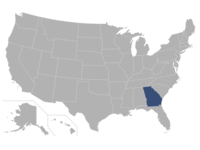Ossoff’s report could leave Georgia with the same lousy child welfare system – only bigger

As soon as Sen. Jon Ossoff released his report on massive failures at the Georgia Division of Family and Children Services, DFCS fired back, accusing Ossoff of “political gamesmanship.”
Actually, it’s worse.
There is every indication that Ossoff is sincere and genuinely wants to help vulnerable children. But that will only make it harder to persuade him that, because of a critical error in his analysis, his report may trigger a response that makes everything even worse. The report is likely to kick into overdrive the foster-care panic – the sharp sudden spike in needless removals of children – that started in the wake of high-profile news coverage of child abuse deaths in 2022. That year, nationwide, the number of children torn from their families declined by 11%. But in Georgia it increased by the same amount.
A foster-care panic makes everything worse because every problem the report identifies has the same counterintuitive root cause that Ossoff ignored: needless removal of children from homes that are safe or could be made safe if families received the right kinds of help. Often it happens when family poverty is confused with “neglect.”
In 2022, the most recent year for which data are available, 87% of the time Georgia children were placed in foster care in cases where there was not even an allegation of sexual abuse or any form of physical abuse. In 57% of cases there was not even an allegation of substance abuse. In contrast, 47% involved “neglect” which often means poverty. Indeed, in 20% of cases DFCS admits they took away the children because the family lacked housing – a tragedy exposed just weeks ago by WABE Public Radio and ProPublica.
The problem is compounded by the fact that Georgia uses the least harmful form of foster care – placement with relatives instead of strangers – at a rate 40% below the national average.
This does enormous harm to the children needlessly separated – and not just the inherent emotional devastation. Study after study finds abuse in one-quarter to one-third of family foster homes, and the rate of abuse in group homes and institutions is even worse. Ossoff’s own report cites the death of a child killed by his foster parents and the rape of a child in a group home. So it’s no wonder multiple studies find that in typical cases children left in their own homes typically fare better even than comparably-maltreated children forced into foster care.
All the time, money and effort spent harassing impoverished families and taking away their children is, in effect, stolen from finding the relatively few children in real danger. Yet in Ossoff’s entire 64-page report the word “poverty” does not appear even once. Perhaps that’s because birth parents and their lawyers were largely shut out of Ossoff’s investigation.
Consider the other failures Ossoff cites: Runaways? If you take children from poor but loving homes and consign them to the chaos of foster care with strangers, of course they’re more likely to run away. Sex trafficking? Group homes and institutions are magnets for sex traffickers – predators go where the prey is.
But because Ossoff ignored wrongful removal, his report is likely to generate another knee-jerk rush to take away even more children. As entries into foster care escalate, everyone will be even more overwhelmed and even more children in real danger will be missed.
Then DCFS will announce another tired “recruitment campaign” for foster parents and the Legislature might fund a caseworker hiring binge. That never works. All the new caseworkers wind up chasing all the new cases, and all you get is the same lousy system only bigger. Indeed, the last time this was tried, as a result of a class-action lawsuit settlement, DFCS actually took money away from poor people to finance making the family policing system even bigger.
And make no mistake – it is a policing system. It’s hard to imagine any of my fellow progressives issuing a report on policing without mentioning issues like racism and racial bias. But that, too, is entirely missing from Ossoff’s report. Like many other progressives, Ossoff seems to forget everything he believes in about civil liberties and due process as soon as someone whispers the words “child abuse” in his ear.
DFCS is every bit as bad as Ossoff says it is. But fixing it requires taking all the new money that might go to hiring caseworkers and plowing it instead into ameliorating the worst effects of poverty. New hires should work for community-based anti-poverty agencies not connected to the family police. It takes only a little financial help to make a big difference. Georgia also needs to bolster legal representation for families – not to get “bad parents” off, but to craft alternatives to the cookie-cutter “service plans” churned out by DFCS.
If, as I believe, Ossoff really wants to protect our most vulnerable children, he should go back to the drawing board and embrace real solutions.








